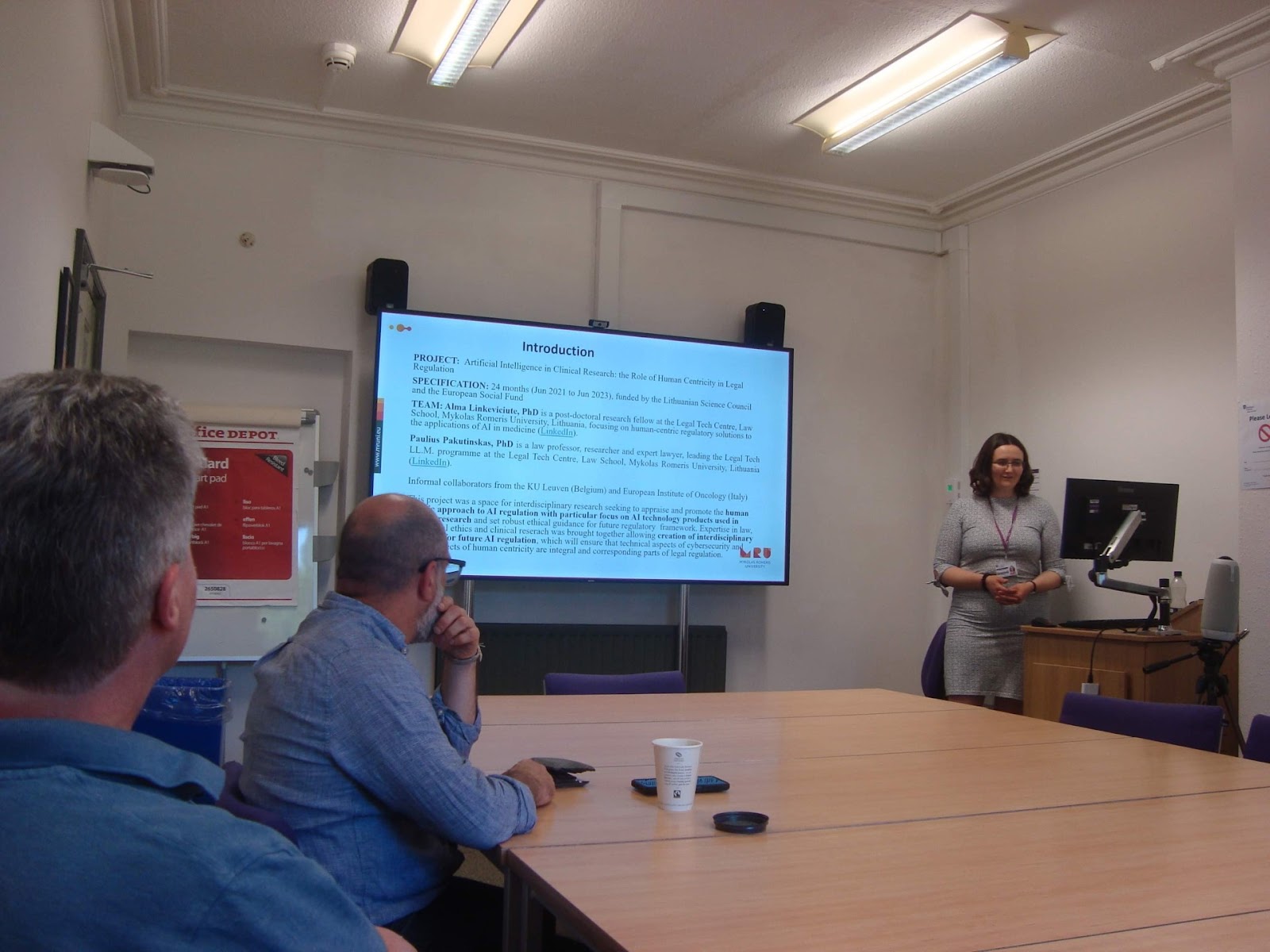Health and Social Theory Research Group hosts a visitor from
Lithuania
I am Dr. Alma Linkeviciute from the Mykolas Romeris University in Lithuania, and this summer term I was a visiting researcher with the Health and Social Theory Research Group. On my academic research side of life, I work on interdisciplinary research projects in Bioethics, Technology Ethics and Regulation. My academic background is in Biology, Law and Governance, and I also have an advanced Erasmus Mundus Masters degree in Bioethics from KU Leuven, Belgium, and a PhD in Life Sciences and their Ethical Consequences (FOLSATEC) from the University of Milan and the European School of Molecular Oncology in Italy.
My research interests lie in regulation of new technologies and ethical, social and legal implications (ESLI) when emerging technologies are used in medicine and clinical research, reproductive ethics, cancer during pregnancy, and research integrity projects. I also work in commercial clinical research (CRO) industry, where I am a Patient Engagement Lead contributing strategic solutions for diverse and representative patient recruitment to global clinical studies.
During my research visit to Durham University, I had an
opportunity to present my current research project “Artificial
Intelligence in Clinical Research: The Role of Human Centricity in Legal
Regulation”, funded by the European Social Fund and the Lithuanian Science
Council. I shared my research team’s proposal for diverse and inclusive digital
patient outreach, stressing the importance of ethics-by-design approach to
artificial intelligence (AI) tools and systems. I argued that the core tenets
in ethics-by-design approach should be trustworthiness, transparency, safety, respect
for data subjects’ vulnerabilities and equal consideration of data subjects’
welfare and interests.
My presentation was followed by a lively discussion with the Group about the problems and solutions, when AI tools are used for digital advertising in clinical research space. I also had an opportunity share my research about the intersection of AI solutions for medicine and cancer treatment during pregnancy at the Group’s Showcase.
It was a delight to join the Group’s seminars and informal
gatherings as well as to attend numerous seminars and workshops across the
University. I very much enjoyed learning about interdisciplinary approach to research,
diverse project presentations and opportunity to make connections with Durham scholars.
As an avid explorer, I loved the historic centre of Durham, its museums and
walks along the River Wear. The Botanic Gardens topped my list as a favourite
place to reflect and relax.
Credit: The blog was contributed by Alma Linkeviciute




Comments
Post a Comment